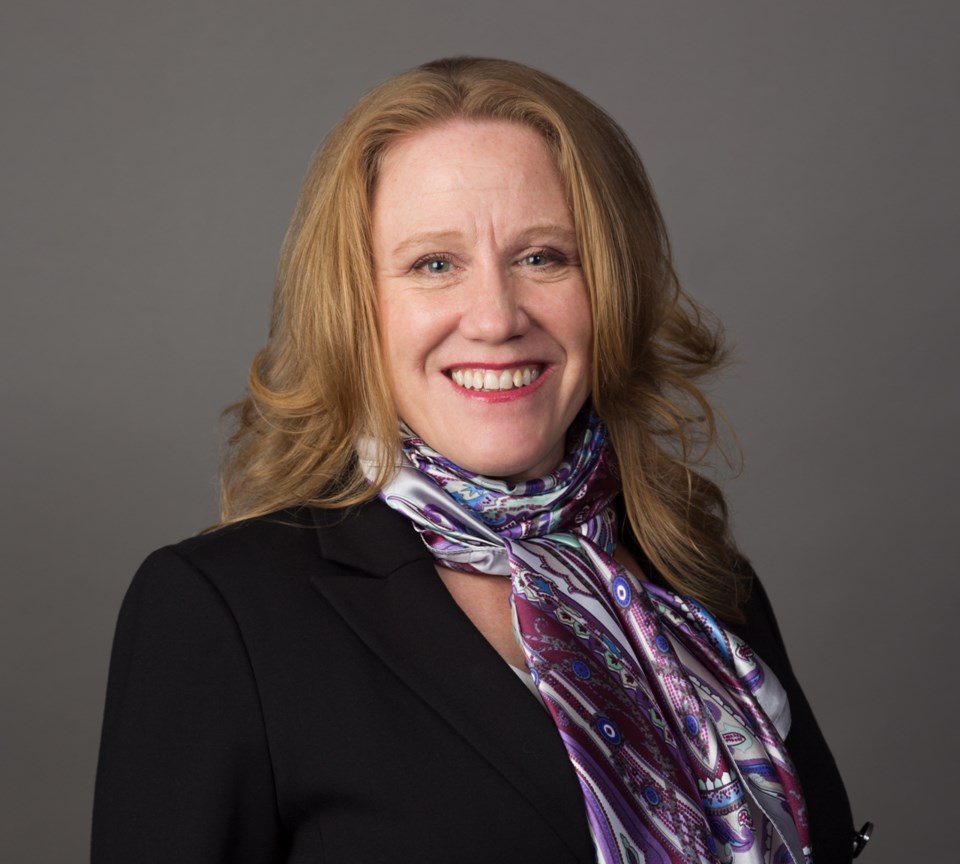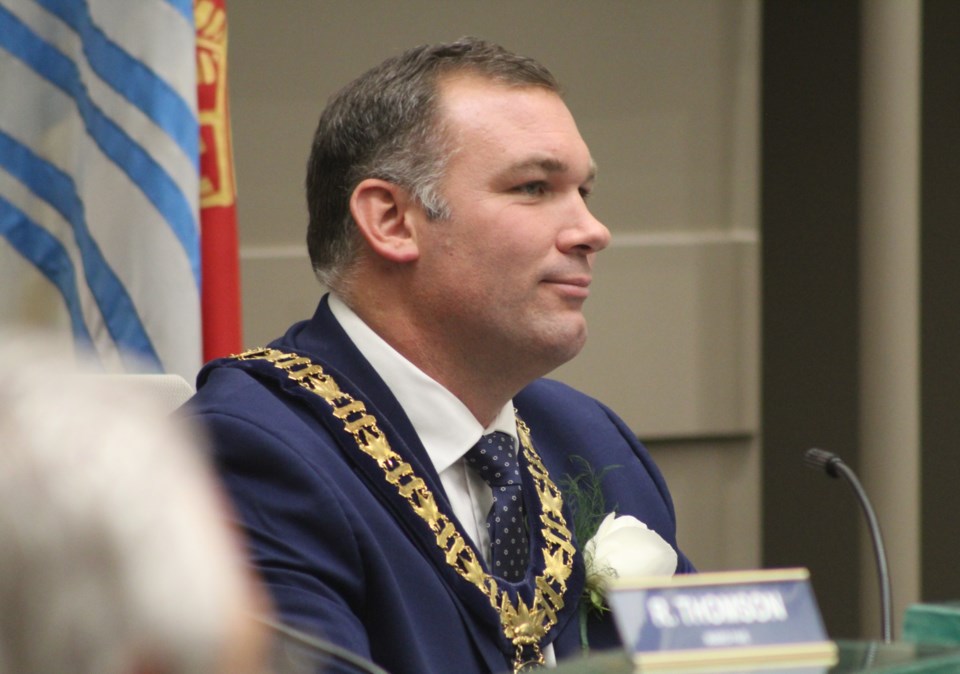Zero, for now.
The typical Barrie homeowner will pay no more property taxes for the city portion of next year’s operating and capital costs.
Council gave final approval to those 2024 budgets Wednesday night.
“We’re telling our residents we understand now’s the time to live within our means,” said Mayor Alex Nuttall.
“It’s our job to hold the line on operational costs, so that we aren’t increasing the tax to the residents,” said Coun. Bryn Hamilton.
Coun. Clare Riepma said it’s important council got to zero, but with a caveat, for a typical Barrie home assessed at $368,000, and with a 2023 tax bill of $4,724.
“I want to remind you though that we do have a police budget coming and a County (of Simcoe) budget, and they’re not coming in at zero, I’ll betcha,” he said. “We’ve got some hard work to do yet.”

Only Coun. Amy Courser voted against the budgets, saying she understood the financial pressures residents are facing, but there are staffing impacts, hits on service levels and city reserves are being drained to make zero.
“I’m having a really hard time with the obsession of zero and what the true impacts of those numbers are,” she said. “I think we’re just kicking things down the road, we’re under-funding things.
“When we have to pay the piper on a lot of these things … I don’t buy into this 'zero at all costs.' I think that small incremental changes would be much more effective.”
Council actually whittled down the increase last night to 0.023 per cent, or $1.11 more for the typical homeowner, but then lowered that to zero with a motion that city services be maintained with no tax impact, by using funds from the tax rate stabilization reserve.
“This is just one piece of the puzzle that we have the ability to hold it at zero,” said Coun. Gary Harvey, chairman of the city’s finance and responsible governance committee. “People are not going to see a zero increase when they look at their overall tax bill when it does come forward.”
And that zero is only zero for now.
There’s $94.36 more for infrastructure — roads, pipes, etc. — next year, plus $15.42 more for water, another $27.61 for sewer services.
Plus increases, paid by property taxes, for policing, library expenses and County of Simcoe services, all not to be determined until January’s end.
“We’re at the end of the city-controlled portion of the budget,” Nuttall said. “The rest of it will pick up in the new year when it comes to the (service) partners.”
Still to come is the Barrie Police Service budget, scheduled to be presented in the new year.
City police typically comprises 20-plus per cent of city spending. And police spending is historically the largest portion of Barrie’s annual operating budget: this year it’s 22.1 per cent, it was 21.8 per cent last year and 22.2 per cent in 2021.
The County of Simcoe, another city service partner, supplies land ambulances and paramedics, health and emergency services, Ontario Works, children’s services, social housing, long-term care (LTC), seniors services and community services, which includes homelessness, to the city, which gets an annual bill.
Simcoe County council approved its $774-million operating and capital budgets Nov. 28. County officials have not made Barrie’s share available.
The two per cent tax rate increase for infrastructure investment funding, or IIF, which would add $94.36 to the property tax bill for a typical home, is used to replace and renew Barrie’s roads, pipes, buildings and bridges. Half would go for tax-based infrastructure and the other half for stormwater infrastructure.
Barrie’s user-rate budget for water requires a 3.97 per cent annual rate increase, or $15.42 more next year for a typical Barrie home. For wastewater (sewer), the rate increase would be 4.94 per cent, or $27.61 more for a typical home.
For a typical household that uses 180 cubic metres of water and wastewater annually, the 2023 cost of water services is $389 and for wastewater services $559. Those annual bills would increase to $404.42 and $586.61 respectively next year.
The 2024 tax-supported base operating budget for city operations and the IIF has gross expenditures of $325.5 million and a net property tax levy requirement of $191.9 million.
Driving next year’s expenses in the city portion of the operating budget is a $9.2 million or 2.88 per cent hike in costs to maintain Barrie’s service levels, although this is partially offset by an anticipated $6 million increase in property tax assessment next year. Other reductions moved it close to zero.
The city’s 2024 capital budget totals $691 million, including previously approved funding requests of $269 million, $253 million in spending this year and $169 million in ongoing, multi-year costs.
Key capital projects in 2024 include the construction of Bryne Drive South from Harvie Road to north of Caplan Drive, building the Allandale and downtown transit mobility hubs, constructing Duckworth Street from Bell Farm Road to St.Vincent Street and the new transmission waterman and road expansion on Bayview Drive, from Little Avenue to Big Bay Point Road.
Also in the capital budget is the new waterfront 1,000 tree-planting program, spending $50,000 for 2024 and then $50,000 per year for next nine years, to be funded from the city’s ecological offsetting reserve.
Capital spending is funded from a combination of property taxes, development charges, issuing debt, grants, user rates and reserves.
Development charges are designed to recover the capital costs associated with residential and non-residential (commercial, industrial, institutional) growth within a municipality from developers, so that existing residents don’t have to foot the bill for new residents.
Major service partners — Barrie police, County of Simcoe, Barrie Public Library — make their presentations to councillors on Jan. 17, 2024, then those budgets go to general committee on Jan. 24 and council on Jan. 31.
Once the operating, capital and service partners budgets are approved, Barrie homeowners will know the full extent of their 2024 property tax increase.
Barrie’s annual operating and capital budgets not only set property tax rates, but levels for more than 60 services such as firefighting, snow clearing, road repairs, transit, parks and recreation and water treatment.
While municipal governments cannot pass deficit budgets, they can accumulate debt.
Barrie’s forecast debt level at the end of this year is $299 million, but it drops to $280 million next year, then it’s $294 million in 2025, $291 million in 2026, $287 million in 2027 and $277 million in 2028.
Large 2024 debt items include almost $5.2 million for the city’s fleet renewal and $3.9 million for the waste water treatment facility’s new advanced nutrient renewal system.
Barrie councillors should have little doubt how their constituents feel about property taxes. Oraclepoll Research did a phone survey of city residents this past fall.
To maintain existing city service levels, respondents were asked if they were willing to pay slightly higher taxes. While 43 per cent said yes, 48 per cent said no and nine per cent were unsure.
Respondents were also asked if the taxes they pay to the City of Barrie are fair in relation to services received. While 44 per cent answered yes, 46 per cent said no and 10 per cent were unsure.
Oraclepoll’s survey of 1,000 adult Barrie residents took place Oct. 18-26, 2023 and the results have a margin of error of plus or minus 3.1 per cent.


